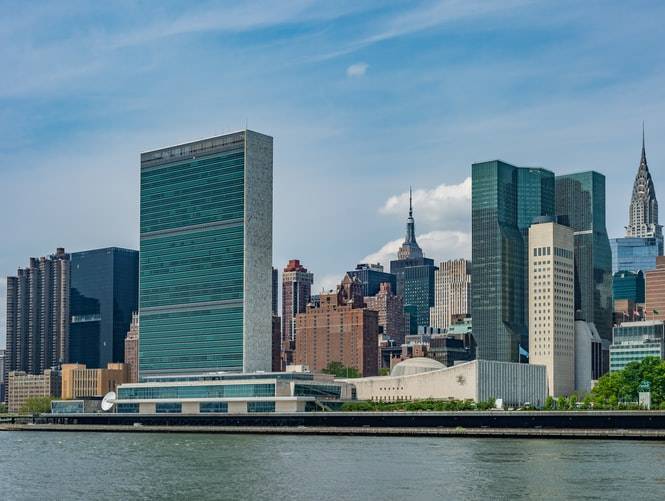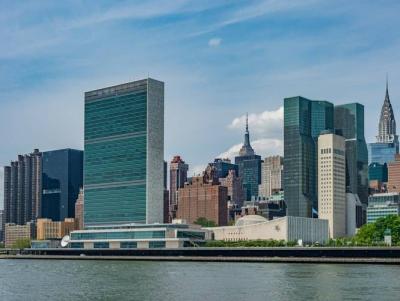The vote in the UN Security Council on extending the cross-border aid mechanism to Syria without Damascus's approval has been postponed, which was originally scheduled for Thursday, in an attempt to soften Russia's stance, according to diplomatic sources on Wednesday. A diplomat who requested anonymity stated that "the idea now is to hold the vote on Friday," while another source mentioned that the delay provides "more time to finalize negotiations." The UN's mandate for cross-border aid, in effect since 2014, ends on Saturday and was sharply reduced in 2020 under pressure from Moscow.
Since the beginning of the week, Russia has rejected any discussion of the draft resolution proposed by Ireland and Norway, the non-permanent members of the Security Council responsible for the humanitarian situation in Syria. Moscow, an ally of Damascus, wants the regime to regain sovereignty over all Syrian territory. On Wednesday evening, Ireland and Norway made a significant amendment to their proposal in an effort to soften Moscow's position and persuade it to allow the text to pass.
In its original form, the draft resolution included two main points: extending the operation of the cross-border aid mechanism to Syria from the Bab al-Hawa border crossing (in the northwest) with Turkey for another year and expanding the scope of this mechanism to also include the al-Yarubiyah border crossing with Iraq, as was the case in the past. The Bab al-Hawa crossing allows aid to reach more than three million people in the Idlib region, while the al-Yarubiyah crossing facilitates aid to areas in northeastern Syria.
In an effort to convince Russia to soften its position, Ireland and Norway updated their draft resolution on Wednesday evening, dropping the demand to reopen the al-Yarubiyah crossing and retaining only the Bab al-Hawa crossing, according to diplomats. Russia attributes its refusal to extend this mechanism to the belief that international aid can reach those in need through Damascus and across the front lines, a proposal firmly rejected by the West.
France had threatened to halt international aid if the Security Council does not extend the cross-border mechanism. French Ambassador to the UN Nicolas de Rivière recently stated that "92% of humanitarian aid to Syria comes from (Europe) and the United States, Canada, and Japan. No one should expect that this funding will be redirected to go through the front lines," emphasizing that this solution is not feasible. On Tuesday, the United States announced that it would not accept "less than what we have today," specifically an extension of the mechanism at Bab al-Hawa for one year.
The NGO "Union of Medical Care and Relief Organizations - France," active in Syria, called on Wednesday to maintain the last corridor for humanitarian aid, stating that "there is no alternative plan." The organization expressed its desire to "sound the alarm" regarding the potential loss of a corridor in northwest Syria that allows aid to be delivered from neighboring Turkey to Idlib province, which is the last stronghold for some fighting groups, without the need for Damascus's approval.
The mechanism came into effect in 2014, but it was subsequently reduced to the Bab al-Hawa crossing, where hundreds of humanitarian workers formed a human chain on Friday to demand the preservation of the direct crossing corridor. The humanitarian organization stated in a statement that "the discussions... are witnessing Russia, the main ally of the Syrian regime, pushing for the approval of humanitarian aid to cross through front lines or crossings, which implies that Damascus must directly control (aid) under the pretext of maintaining Syrian sovereignty." It added that providing aid through the crossing is a "red line (for the Union). We are not sure that aid will actually reach the population."
The French ambassador to the UN, who presided over the Security Council in July, confirmed last week that since the beginning of the year, "50% of humanitarian aid requests across the front lines were rejected by the Syrian regime." The NGO "Union of Medical Care and Relief Organizations - France" stated that the anticipated "decisive vote" will determine the fate of humanitarian aid in Syria, noting that "ten years of war have had a devastating impact... 13.4 million people need humanitarian assistance," an increase of 21% since 2020, according to the statement.




